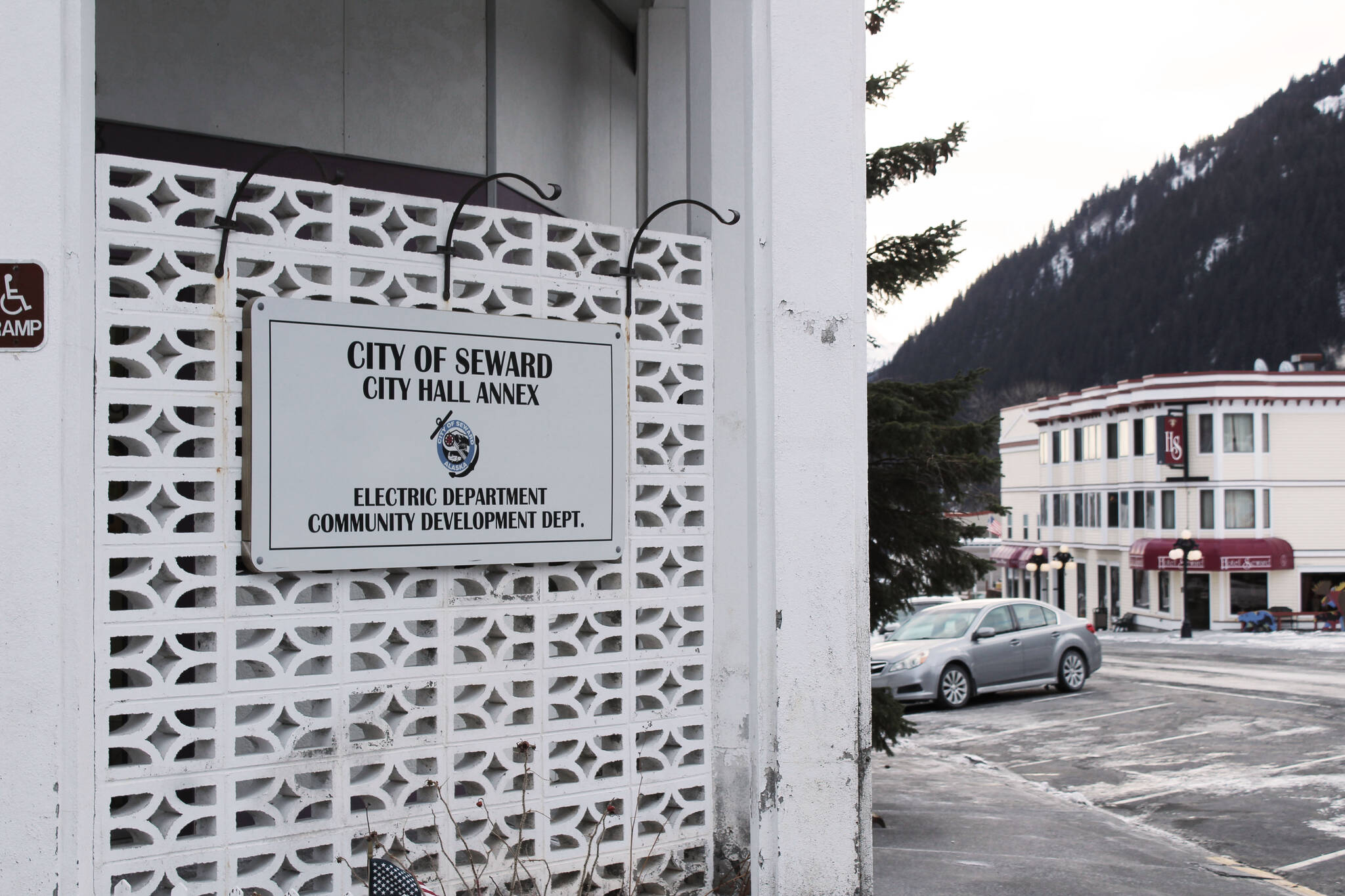With less than two months to go until the Kenai Peninsula’s Oct. 3 municipal elections, the Seward City Council is clearly outlining where it stands on the sale of the city’s electric utility to the Homer Electric Association.
Council members on Monday approved two action memorandums related to the proposed sale. One outlines why the council thinks it is in the city’s best interest to sell its utility. The other explains why Homer Electric Association is the city’s preferred buyer.
Seward residents during a May 2 special election narrowly voted to kill a sale of the city utility to Homer Electric Association. Although a majority of voters — 58% — supported the sale, votes in favor did not meet the 60% threshold needed to move the sale forward. The sale ultimately came down to just seven votes.
Council members last month decided to put the same sale back on the city’s ballot for the Oct. 3 election, alongside a question asking voters whether or not to lower the threshold needed to authorize city utility sales. Specifically, the ballot question would ask voters whether to change the threshold from a three-fifths majority to a simple majority.
In bringing the two memorandums forward, council members Liz DeMoss and Randy Wells wrote that they are, in part, responding to calls from community members to provide a formal explanation from city council members about the need for the sale and their preference for HEA.
“City Council members have verbally discussed the reasons they believe selling the Electric Utility is a positive action for the community, but no formal legislation has been passed which explicitly stated the reasons,” the memo explaining the utility sale says. “The intent of this Action Memorandum is to provide a formal list of those reasons so that the public can hear from (the) City Council as a body and put to rest any lack of clarity for the public.”
DeMoss and Wells in their memo outlining the need for a utility sale touted rates, resources and reliability as the key reasons why the city should sell.
Seward residents will face “multiple rate increases” over the next 10-15 years, they wrote, as the city addresses deferred electric maintenance funds. HEA is also a much larger utility than the city, meaning the city would have access to staff that Seward currently contracts out, they said. Finally, Wells and DeMoss said the city’s electric grid will become less reliable as the city is forced to balance rate increases with needed improvements to Seward’s electric infrastructure.
Among the benefits of selling the utility to HEA, they wrote, are the cooperative’s long-term visions, the fact that it is farther along than other Railbelt utilities when it comes to cybersecurity and the city’s comfort with HEA’s leadership stability and financial health. DeMoss and Wells also said that HEA has committed to giving the City of Seward representation on the HEA Board of Directors and to freeze rates for Seward customers for at least three years.
During Monday’s meeting, council members continued to field public comments about the proposed sale of the utility. The conversation surrounding the sale continued past the May 2 special election, and the city this summer created an ad hoc committee tasked with studying the future of Seward’s electric utility.
Seward resident Jason Ebberson told council members Monday that he opposes holding a revote on the city’s electric utility sale and accused the city of “moving the goal posts” by lowering the vote threshold needed to advance city utility sales.
“Now instead of trying to educate our voters on the issue, we are going to move the goal posts to allow the sale to pass more easily, with a possible small majority on such a massive and long-term issue,” Ebberson said. “If the sale is intended to serve the community, then the voters need to be as educated as possible in order to make an informed decision that will impact the city and the surrounding areas we serve for many years.”
Kevin Dunham, who said he lives outside of city limits, asked council members to reconsider the offer made by Chugach Electric Association, which also wanted to purchase the city’s utility. Dunham said although HEA promised a three-year rate freeze, residential rates will eventually need to go up. Further, he said Chugach has similar benefits as those listed in the council memo.
“You can put (Chugach Electric Association) in front of every single one of those line items,” Dunham said, referring to the memo. “Chugach has done a wonderful job (and) has been a partner of Seward ever since the line went in. They’ve never hurt us in any way. I don’t really know where the bad feelings came from.”
Seward City Council member Robert Barnwell thanked Dunham for his testimony, acknowledging that the electric utility sale is a complicated topic about which Dunham has a lot of knowledge.
“I really hope that the ad hoc (committee) can get us some information before that election and get it out there and have these conversations and figure out what the heck we’re going to do,” Barnwell said.
Monday’s city council meeting can be streamed on the City of Seward’s YouTube channel.
Reach reporter Ashlyn O’Hara at ashlyn.ohara@peninsulaclarion.com.

